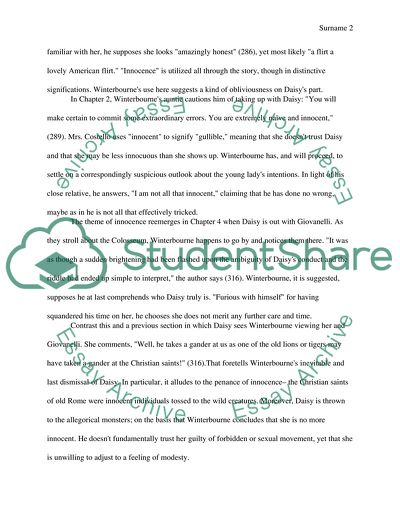Cite this document
(“Daisy Miller Essay Example | Topics and Well Written Essays - 1000 words”, n.d.)
Daisy Miller Essay Example | Topics and Well Written Essays - 1000 words. Retrieved from https://studentshare.org/literature/1690287-daisy-miller
Daisy Miller Essay Example | Topics and Well Written Essays - 1000 words. Retrieved from https://studentshare.org/literature/1690287-daisy-miller
(Daisy Miller Essay Example | Topics and Well Written Essays - 1000 Words)
Daisy Miller Essay Example | Topics and Well Written Essays - 1000 Words. https://studentshare.org/literature/1690287-daisy-miller.
Daisy Miller Essay Example | Topics and Well Written Essays - 1000 Words. https://studentshare.org/literature/1690287-daisy-miller.
“Daisy Miller Essay Example | Topics and Well Written Essays - 1000 Words”, n.d. https://studentshare.org/literature/1690287-daisy-miller.


